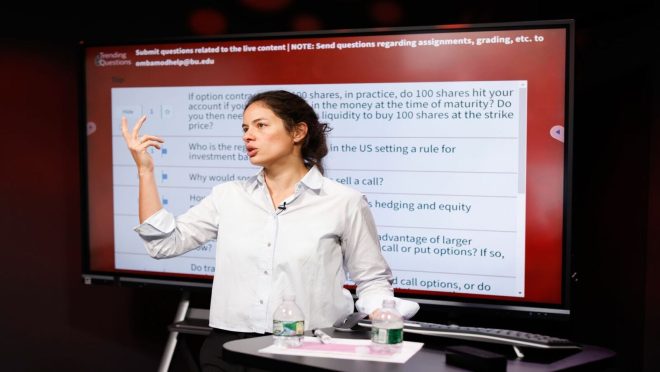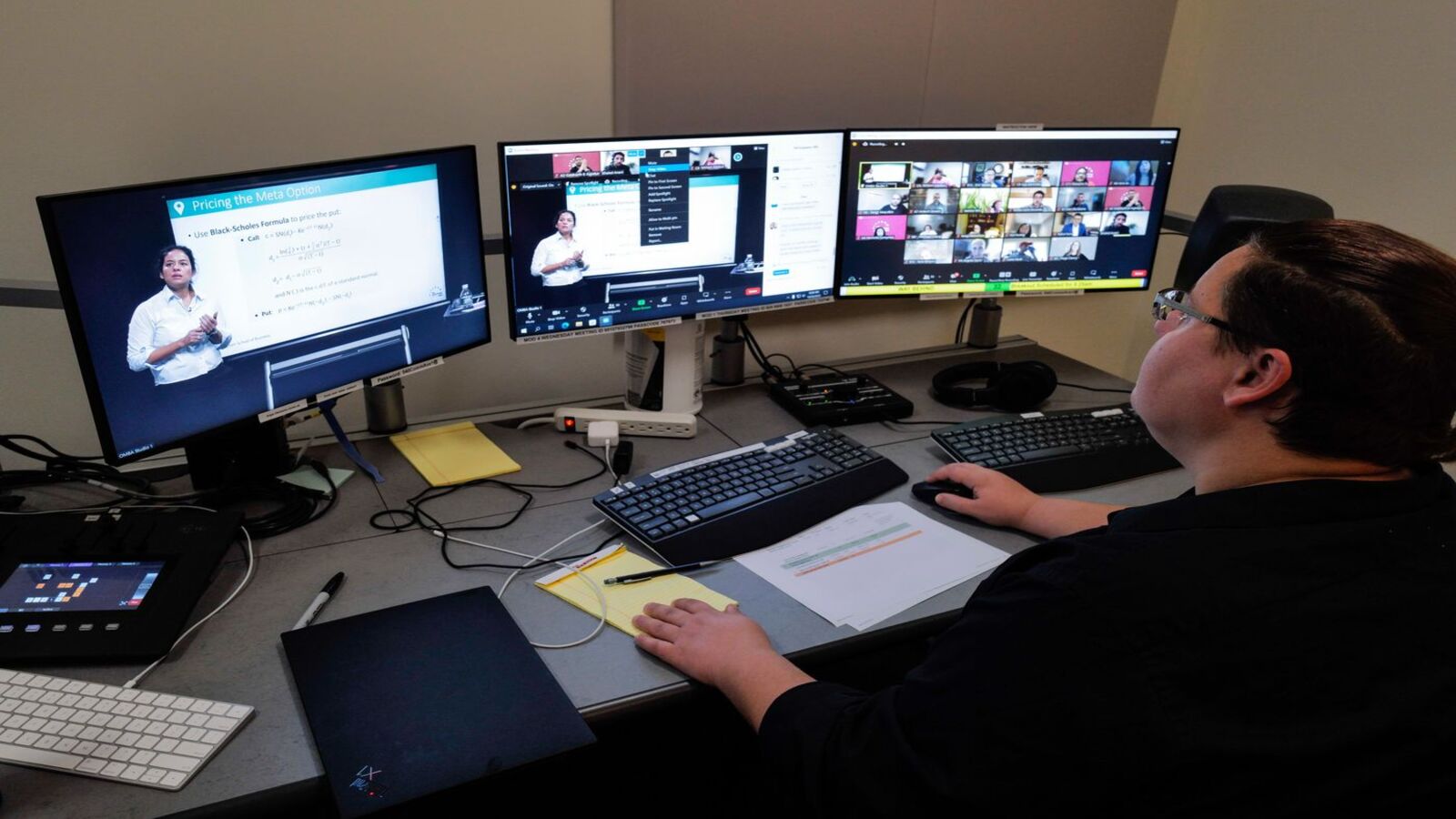Wharton, Berkeley, NYU Offering Online M.B.A.s for the First Time
Wharton, Berkeley, NYU Offering Online M.B.A.s for the First Time

Starting next year, executive M.B.A. students at the Wharton School of the University of Pennsylvania can earn the $223,500 degree from their living rooms.
After years of resistance, some of the country’s top business schools are starting virtual M.B.A. programs that require only a few days of in-person instruction. Wharton and Georgetown University’s McDonough School of Business said they would include options for executive and part-time M.B.A. students to take most coursework online in 2023.
This fall, part-time M.B.A. students at New York University’s Stern School of Business and the University of California, Berkeley’s Haas School of Business were given an online option for most of their classes. All of the programs will charge online students the same tuition as those who attend in person, and those online students will get the same degree and credentials as their on-campus counterparts.
The move to give students flexible location options comes as demand for two-year, full-time traditional M.B.A. programs has been dropping amid a competitive job market and growing concern about the cost of college.
“The pandemic definitely accelerated this in every industry,” said Brian Bushee, who leads teaching and learning at Wharton and also teaches accounting. “I would be surprised in 10 or 20 years if there were schools that only did in-person and did nothing online.”
Between 2009 and 2020 the number of online M.B.A.s at accredited business schools in the U.S. more than doubled, and schools added more fully online M.B.A. degrees over the past two years during the pandemic, according to the Association to Advance Collegiate Schools of Business. Recent announcements by Wharton and others mark a turning point for adoption of the degrees even at highly ranked campuses, school leaders say.

For decades, part of the M.B.A.’s allure has been the face-to-face networking. But over the past two years, fully online M.B.A. programs in the U.S. enrolled more students than fully in-person programs, according to the association’s survey of more than 150 business schools. A McDonough official said that part-time M.B.A. students tend to be less interested in the networking aspect of school.
Wharton’s online program requires students to log in to live classes every other weekend during the 22-month program, which will include about six weeks of in-person classes. Wharton plans to enroll between 50 and 70 students in its first year, and may expand the class to as many as 96 students in future years.
“To protect the value of the brand, we did not want to have a discount version of the Wharton M.B.A.,” Prof. Bushee said.
When asked, some traditional M.B.A. students at Georgetown’s McDonough and Berkeley’s Haas schools said they were against offering new online options, school officials said, because they feared that virtual versions would devalue their M.B.A.s.
But prospective online students have said they want a Georgetown M.B.A. but cannot uproot their lives for in-person classes, said Prashant Malaviya, McDonough’s senior associate dean of M.B.A. programs.

“They were against it—they are still against it,” he said. “They have very little interest. To me, that’s actually terrific news. I am looking to grow the program by attracting those people who are unable to go to Georgetown.”
Next year, McDonough aims to enroll between 40 and 50 part-time online students for the degree, which should take about three years to complete. Students will come to the school’s Washington, D.C., campus for two weeks and study abroad for one week, but other classes will be virtual. About half of the lectures are streamed live, and the rest can be completed at any time, Prof. Malaviya said.
Haas’s online program has 69 part-time students this year. The program also mixes prerecorded and live content, said Jamie Breen, assistant dean of M.B.A. programs. Core courses are online, and students can choose whether to take their electives online or in person.
At Stern, even the students who choose online courses are required to take nine in-person credits, which can be completed on nights or weekends, or by doing an intensive weeklong session.
Boston University’s Questrom School of Business, which announced its online M.B.A. in 2019, graduated its first online M.B.A. students in August. The degree, which costs $24,000, follows a completely separate curriculum and costs far less than the traditional M.B.A. program. Online M.B.A students watch live broadcasts of professors and talk in small groups or on a virtual online forum. A 2021 survey of students found that 35% received a promotion since enrolling.
Many schools are still reluctant to make a reduced-price online degree because they fear such a product might eat up demand for their traditional M.B.A. programs, said Paul Carlile, who leads online learning at Questrom.
Halley Kamerkar, 36 years old, finished her online Questrom coursework in August and said hearing from fellow M.B.A. candidates in South Africa, Ireland and Miami was valuable.
Ms. Kamerkar, of Salem, Mass., said she thought about graduate school for a long time, but a study guide she bought for the Graduate Management Admission Test gathered dust until she learned about Questrom’s program with its $24,000 price tag. Ms. Kamerkar works in the nonprofit sector and only recently paid back her undergraduate loans.
“I did not want to give up my full-time career to take a step back and pursue education,” she said.
Disclaimer: This report first appeared on WSJ on 22 November 2022 and can be found at Wharton, Berkeley, NYU Offering Online M.B.A.s for the First Time


